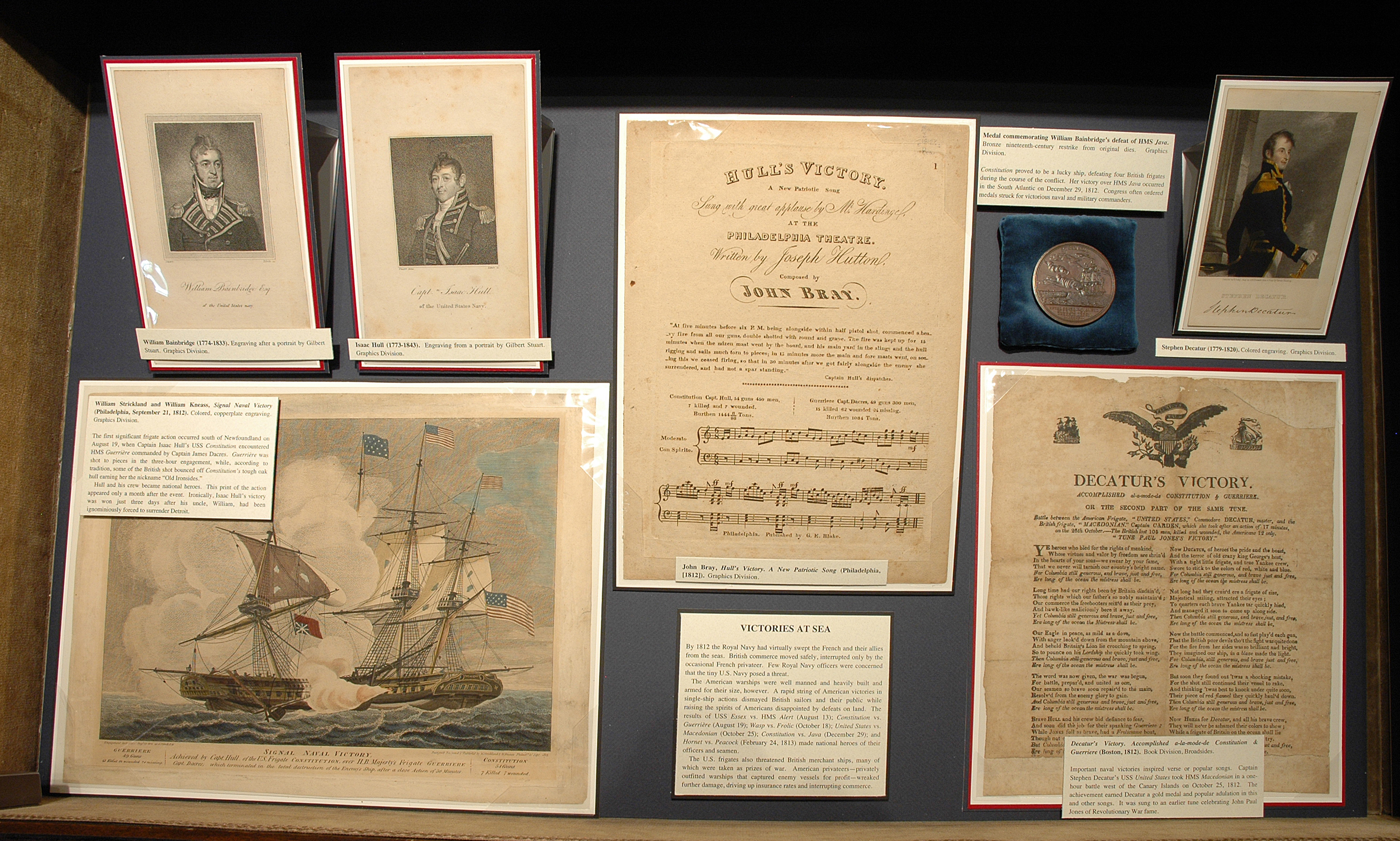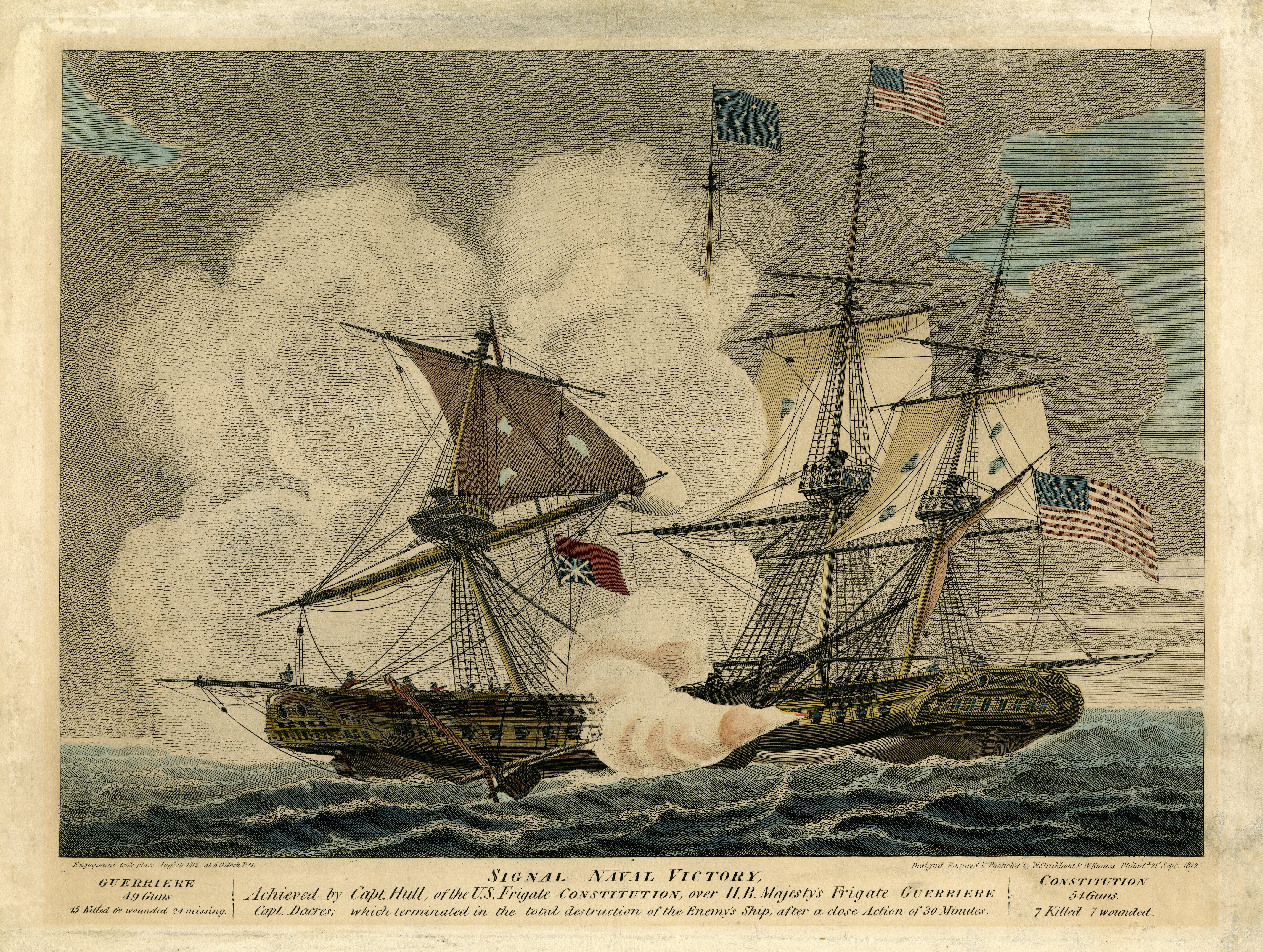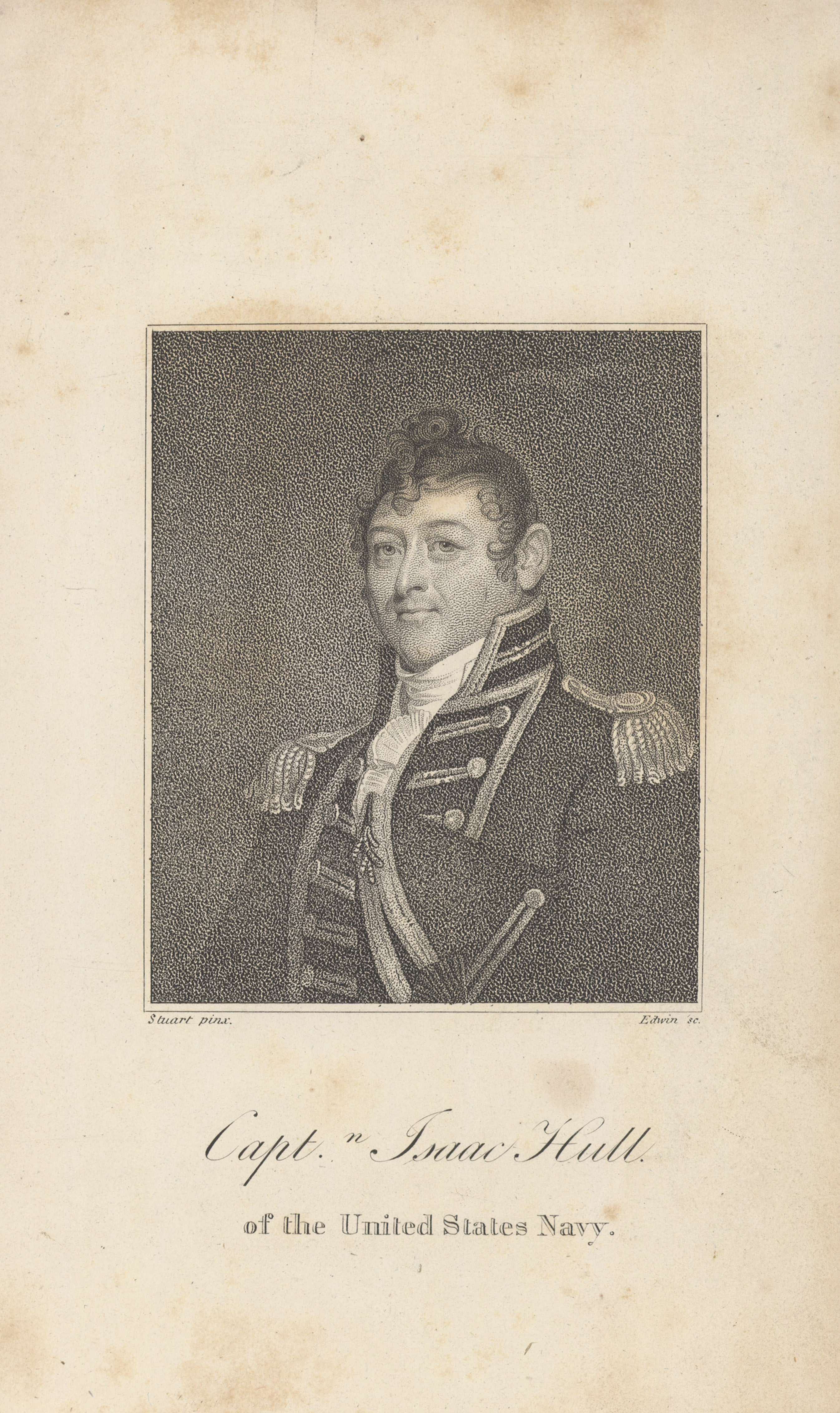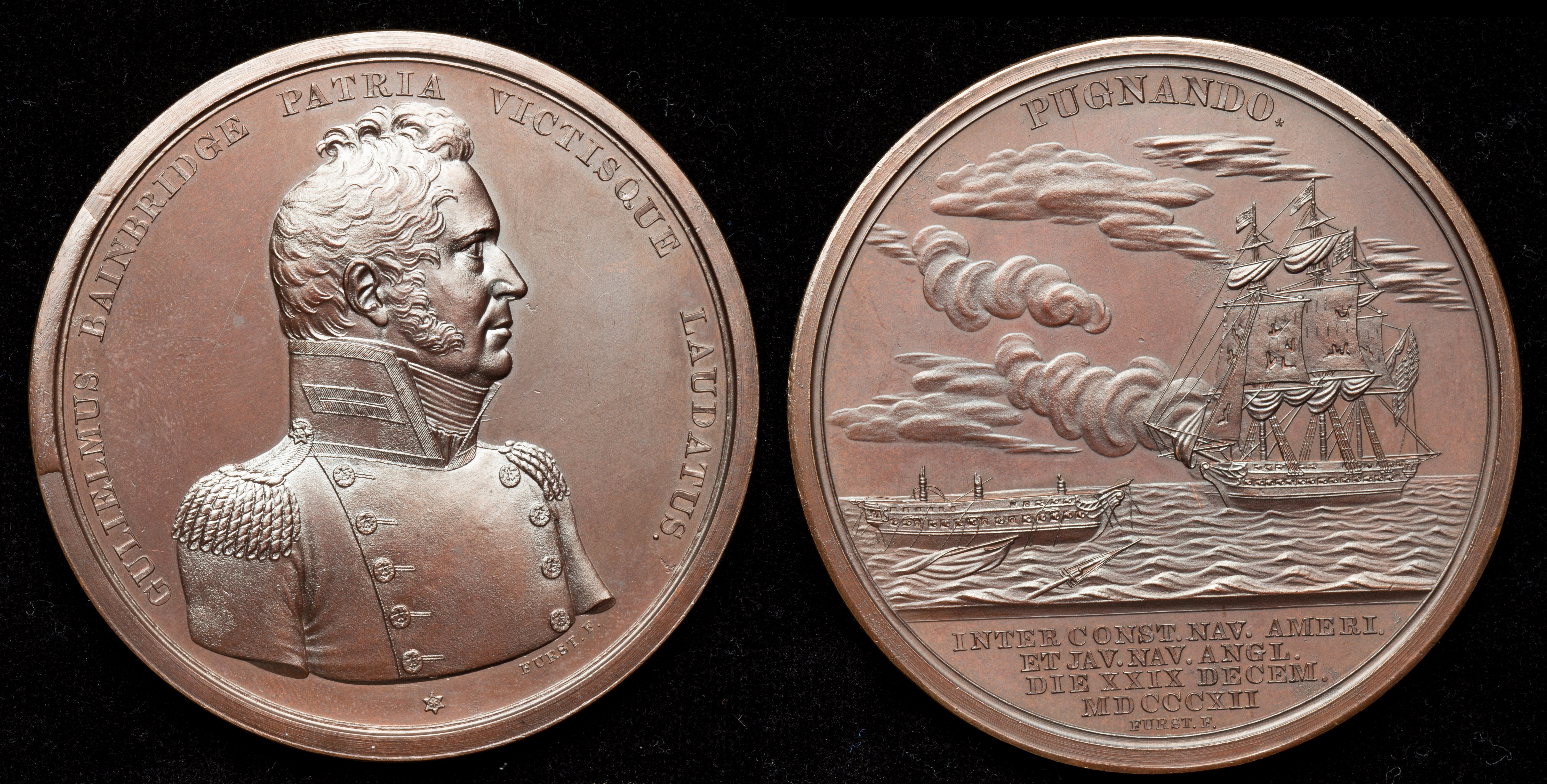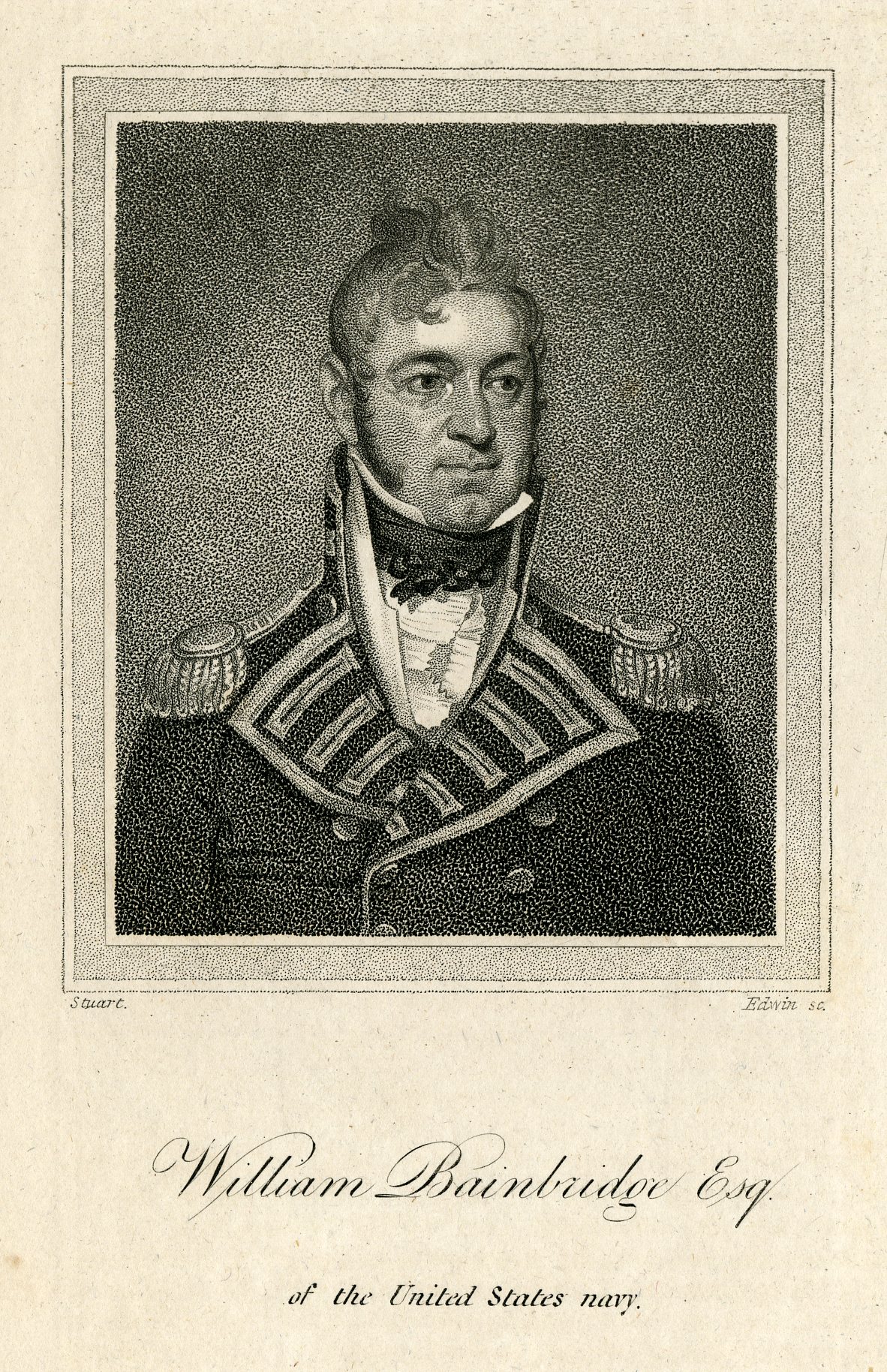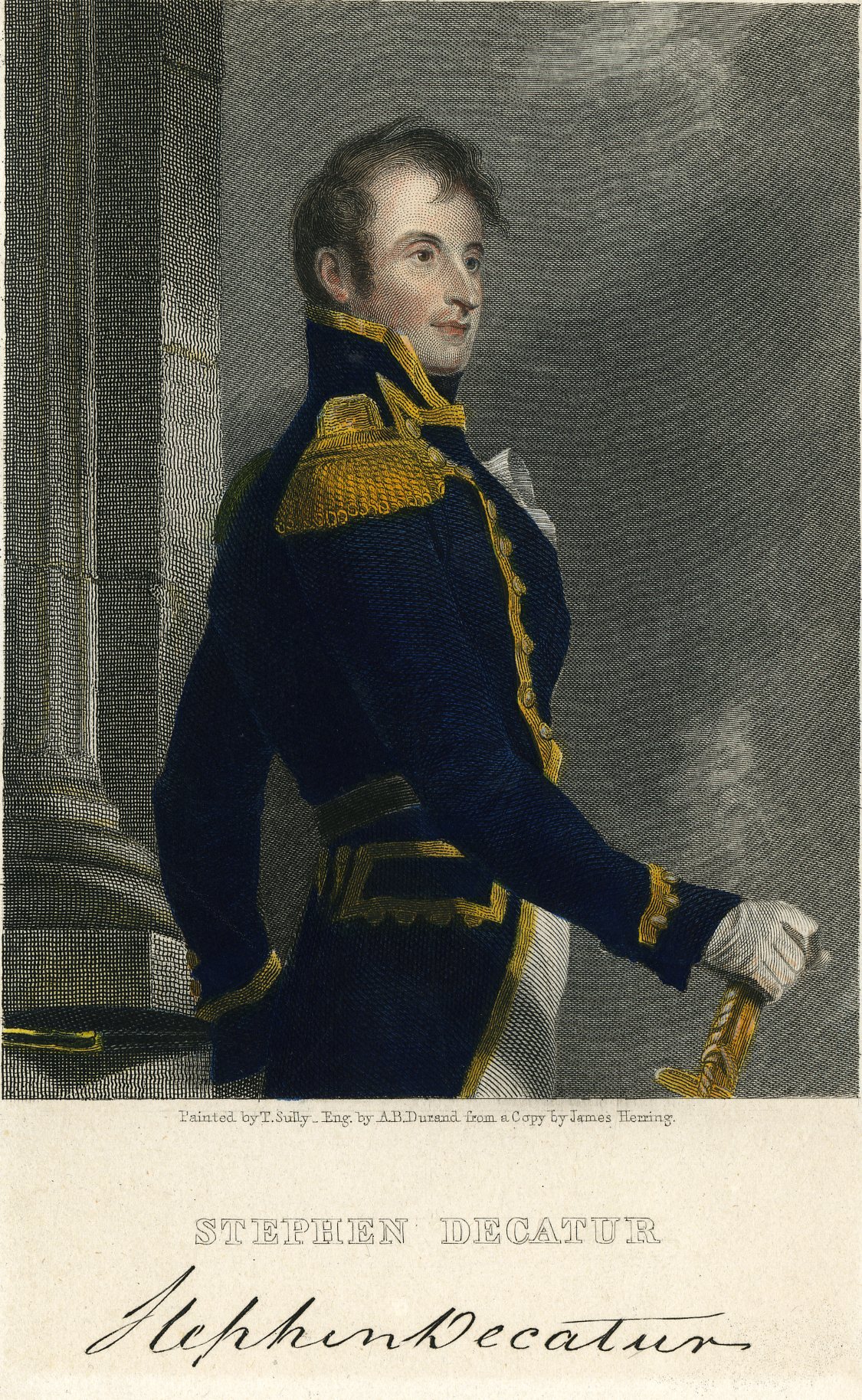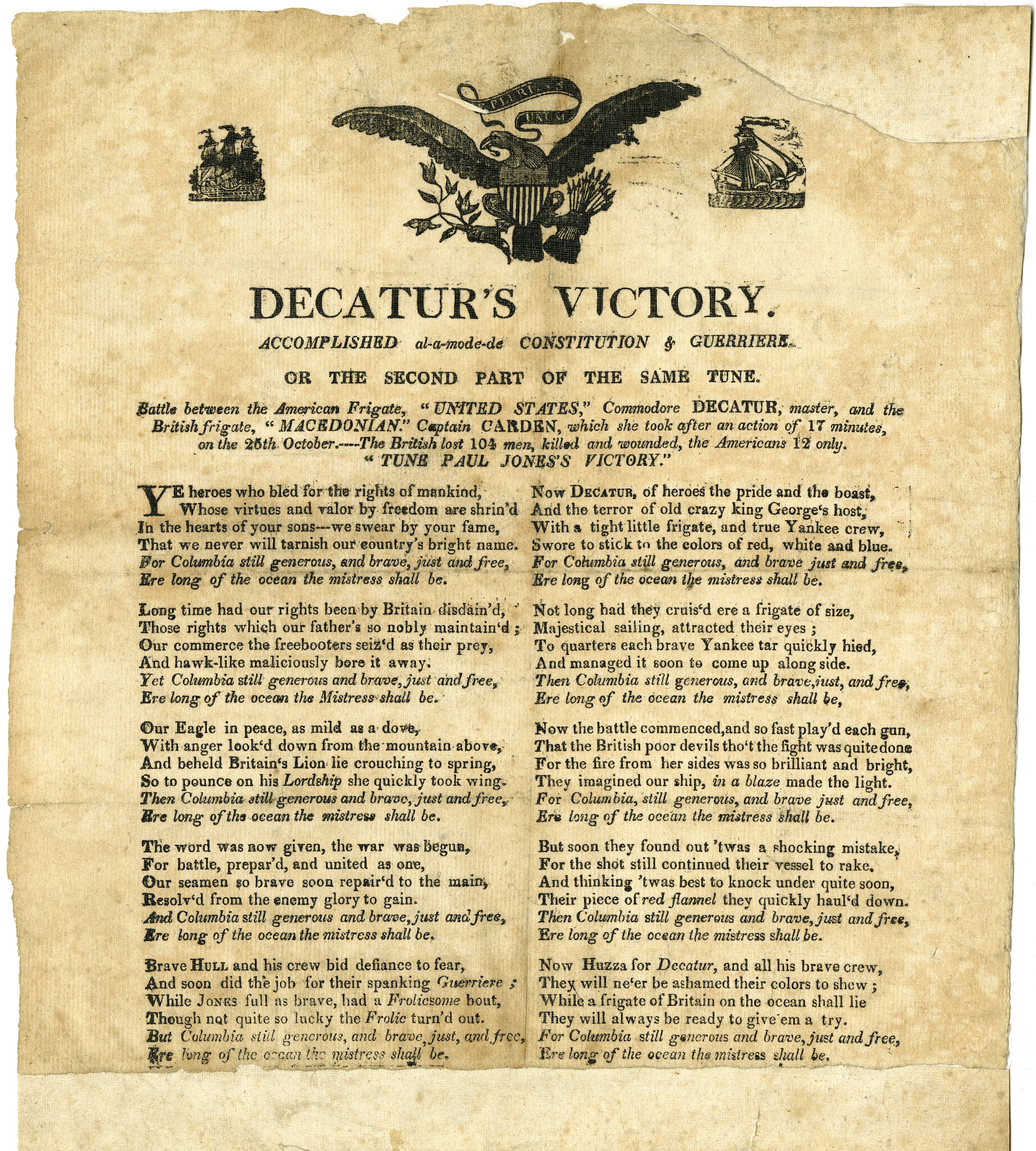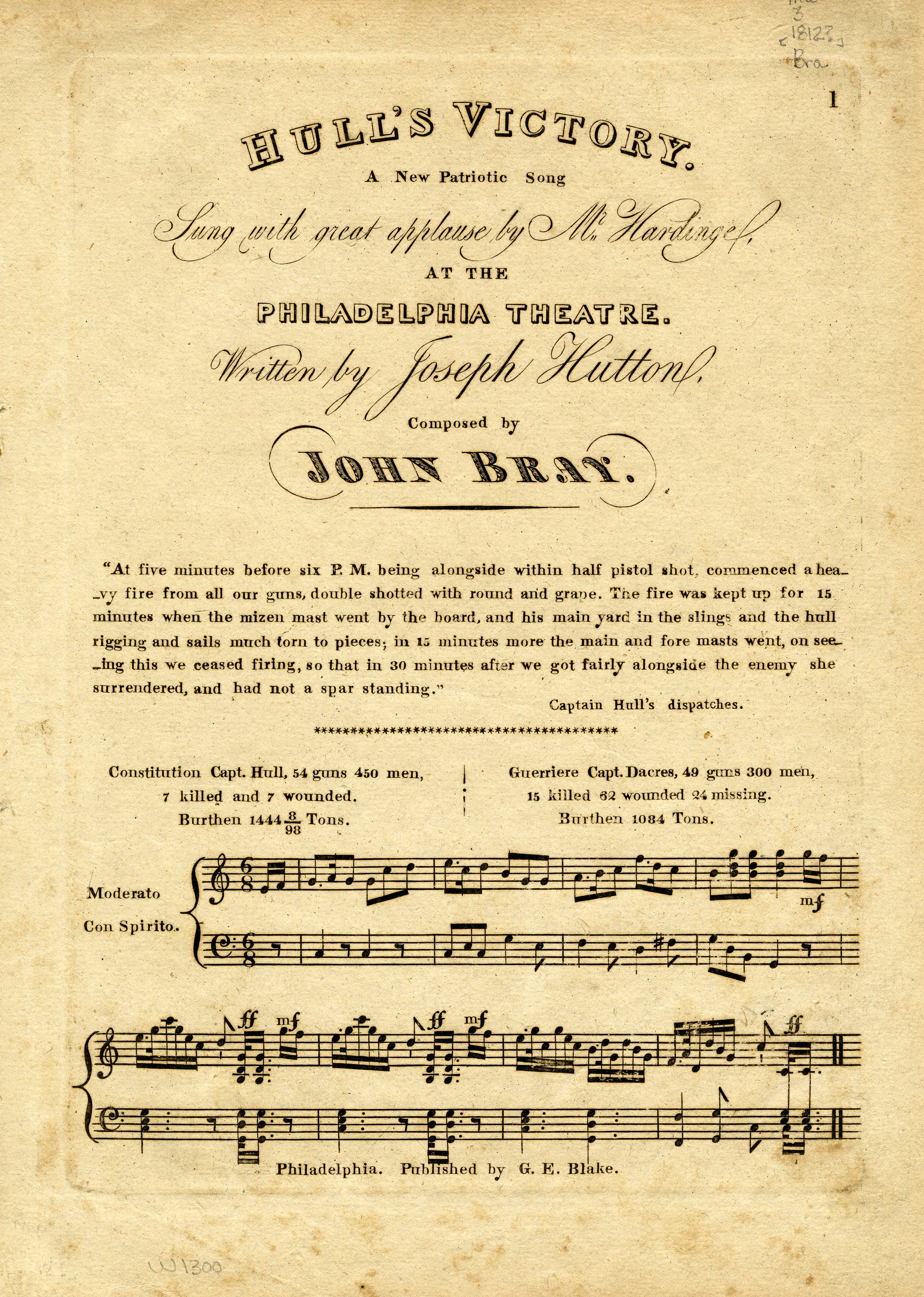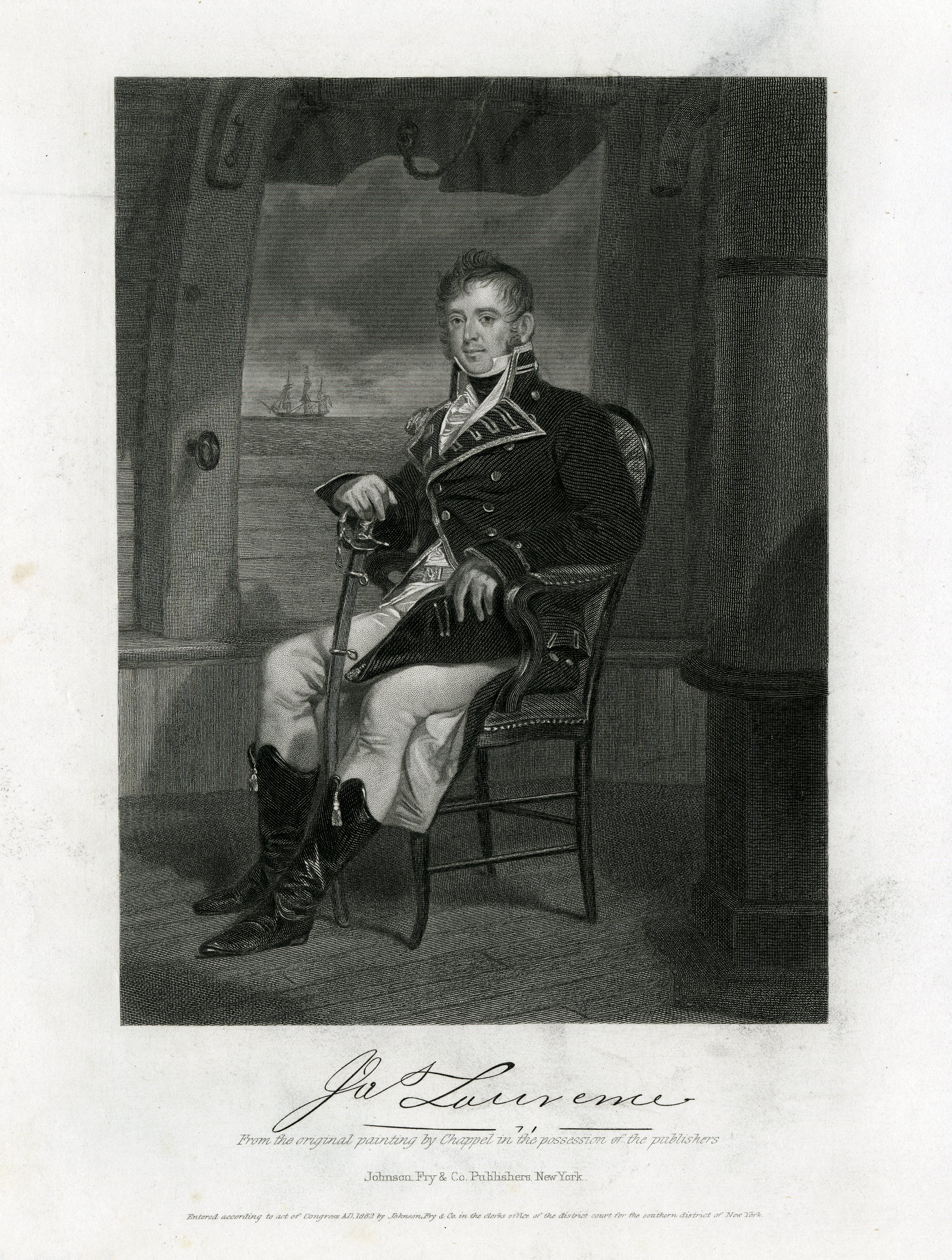The War of 1812: A Bicentennial Exhibition, Case 3
Case 3: Victories at Sea
By 1812 the Royal Navy had virtually swept the French and their allies from the seas. British commerce moved safely, interrupted only by the occasional French privateer. Few Royal Navy officers were concerned that the tiny U.S. Navy posed a threat.
The American warships were well manned and heavily built and armed for their size, however. A rapid string of American victories in single-ship actions dismayed British sailors and their public while raising the spirits of Americans disappointed by defeats on land. The results of USS Essex vs. HMS Alert (August 13); Constitution vs. Guerrière (August 19); Wasp vs. Frolic (October 18); United States vs. Macedonian (October 25); Constitution vs. Java (December 29); and Hornet vs. Peacock (February 24, 1813) made national heroes of their officers and seamen.
The U.S. frigates also threatened British merchant ships, many of which were taken as prizes of war. American privateers—privately outfitted warships that captured enemy vessels for profit—wreaked further damage, driving up insurance rates and interrupting commerce.
William Strickland and William Kneass, Signal Naval Victory(Philadelphia, September 21, 1812). Colored, copperplate engraving. Graphics Division.
The first significant frigate action occurred south of Newfoundland on August 19, when Captain Isaac Hull’s USS Constitutionencountered HMS Guerrière commanded by Captain James Dacres. Guerrière was shot to pieces in the three-hour engagement, while, according to tradition, some of the British shot bounced off Constitution’s tough oak hull earning her the nickname “Old Ironsides.”
Hull and his crew became national heroes. This print of the action appeared only a month after the event. Ironically, Isaac Hull’s victory was won just three days after his uncle, William, had been ignominiously forced to surrender Detroit.
Medal commemorating William Bainbridge’s defeat of HMS Java. Bronze nineteenth-century restrike from original dies. Graphics Division.
Constitution proved to be a lucky ship, defeating four British frigates during the course of the conflict. Her victory over HMS Java occurred in the South Atlantic on December 29, 1812. Congress often ordered medals struck for victorious naval and military commanders.
Decatur’s Victory. Accomplished a-la-mode-de Constitution & Guerriere (Boston, 1812). Book Division, Broadsides.
Important naval victories inspired verse or popular songs. Captain Stephen Decatur’s USS United States took HMS Macedonian in a one-hour battle west of the Canary Islands on October 25, 1812. The achievement earned Decatur a gold medal and popular adulation in this and other songs. It was sung to an earlier tune celebrating John Paul Jones of Revolutionary War fame.

